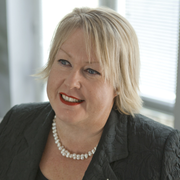Author: Professor Wendy M. Purcell, Rutgers University, Boston, United States.

Kofi Annan, former Secretary-General of the United Nations, observed “If our hopes of building a better and safer world are to become more than wishful thinking, we will need the engagement of volunteers more than ever.”1
This positions volunteerism, a selfless act to serve and improve the lives of others and the world around us, as central to achieving a fairer society.
We are probably all familiar with the general concept of volunteering, such as giving our time to help a neighbour in need or support a cause we care about. From various public health measures, like wellness checks on those living alone or supporting food banks, helping children with their reading in schools, or prison visiting, volunteers make a difference in society and help improve the lives of others. Those who volunteer are also beneficiaries – finding meaning and purpose in their efforts, helping with loneliness and social isolation 2– all linked to improved well-being 3. Some say volunteering is a dying activity 4, others say it’s on the rise 5. In the US alone, over a third of adults volunteered through an organisation – albeit activity declined during the recent pandemic 6. If we factor in volunteering in informal settings, the proportion of people involved in volunteering worldwide is staggering 7.
Key social movements and sustainability efforts owe much of their success to volunteer efforts with millions of people acting on issues that matter to them, volunteering with communities, organisations, companies, and by themselves. In this way, they bring us closer to achieving the Sustainable Development Goals (SDGs) 8. For example, the Sunrise Movement 9 is tackling climate change and is a largely youth-driven effort that encourages community-organising and action-oriented change making. Banning the simple plastic bag went from volunteer efforts to global adoption in a few years 10, with Bangladesh in 2002 being the first country in the world to implement a ban on thin plastic bags. From women’s suffrage movements 11 to voter signup campaigns 12, volunteers help promote democracy and are central to civil society efforts.
In the business world, management guru Peter Druker said we need to “Accept the fact that we have to treat almost anybody as a volunteer”, calling attention to the notion that even if people are rewarded financially in exchange for their labour they still volunteer of their talents and creativity – from discretionary work to emotional labour. If employees were volunteers, it is posited that leaders would focus more on people’s passions and talents, express gratitude sincerely, listen, include, respect, and act kindly 13. Indeed the post-COVID-19 workplace experienced the phenomenon of the so-called Great Resignation or ‘quiet quitting’ with people leaving their jobs citing disrespect among other factors. Many companies now align their people development strategy with their corporate social responsibility (CSR) agenda. Volunteer days are offered as a benefit, with employees engaged in community-based organisations and projects that are contributing to CSR efforts 14.
Volunteering is a growing trend in the tourism industry, with travellers involved in cleanup campaigns, conservation efforts, and preservation of cultural artefacts. For example, The Faroe Islands that welcomes some 110,000 tourists each year announced it was closed to tourists but open to voluntourists 15. These volunteers apply to be involved in repairing hiking trails, viewpoints, and ancient cairns, helping to repair the Islands. Some have criticised so-called “do-gooders” citing concerns over tourists volunteering in orphanages given the majority of the children had a living parent 16. Others call out cultural insensitivity or the casual imperialism 17 of the tourists volunteering and highlight a dark side of voluntourism 18.
The United Nations State of the World’s Volunteerism Report 2022 19 highlights volunteerism as a powerful force that is helping to shape and advance sustainable development offering new pathways for rights-based participation. It calls particular attention to the importance of volunteers working with other actors in society, especially government agencies, state institutions, and policymakers. These new partnerships, especially with volunteers from marginalised groups, are helping to reshape public policy. However, it remains the case that participation in this discretionary labour is not equitable. Those from over-burdened and under-resourced communities are necessarily limited in the time available given economic hardship and domestic fragility. So too, women and girls are often excluded given gendered models of caregiving and/or cultural restrictions. The report 20 asks us to reflect on who participates, to what extent, and for what outcome and calls for action to ensure no one is left behind when it comes to opportunities to volunteer.
As former UK Prime Minister Winston Churchill opined “You make a living by what you get. You make a life by what you give.” So, let us all pledge to volunteer (more of) our efforts in pursuit of a fairer society.

Fairer society
We are passionate about working with researchers globally to deliver a fairer, more inclusive society. This perhaps has never been more important than in today’s divided world.
